You may know saffron as the expensive spice (it’s actually one of the most expensive foods in the world!) with a vibrant red hue, but it is quickly gaining traction as an exciting option in the functional psychiatry arsenal. Saffron is a spice derived from the Crocus sativus flower and it has a long history of culinary, medicinal, and even food coloring uses.
Over the past several years, research has begun to accumulate supporting saffron’s diverse and far reaching mental health benefits. Saffron has been shown to be effective in treating both depression and anxiety, with promising studies also exploring its role in conditions ranging from premenstrual syndrome (PMS) and premenstrual dysphoric disorder (PMDD) to mild cognitive impairment (MCI) and even Alzheimer’s disease. In this article, we’ll explore the up to date literature on its efficacy in anxiety and depression, mechanisms of action, and practical considerations to keep in mind when recommending saffron.
Mechanisms of Action
Saffron appears to exert its antidepressant and anxiolytic benefits through a number of fascinating mechanisms. By inhibiting the serotonin transporter (SERT), saffron increases serotonin availability in the brain, leading to better mood and lower levels of anxiety. It also promotes GABA, the brain’s primary inhibitory and calming neurotransmitter, and blocks NMDA receptors, balancing GABA and glutamate and staving off excitotoxicity. Further, saffron has been shown to modulate dopamine and norepinephrine, two key neurotransmitters in the realm of mental health and cognitive function. Finally, saffron exhibits robust antioxidant and anti-inflammatory effects in the body and brain, making it a neuroprotective powerhouse. In animal studies, it has even been shown to increase levels of Brain-Derived Neurotrophic Factor (BDNF), often referred to as “miracle grow” for the brain.
Saffron in Action
When it comes to depression, antidepressants like SSRIs and SNRIs are the go-to pharmacological treatments in conventional psychiatry. However, their inconsistent benefits and significant side effect burden cannot be ignored. With this in mind, many patients and providers are seeking out safe and effective alternatives and saffron may be a viable option. Studies support saffron’s use as both a monotherapy and an augmentation strategy in the treatment of depression. In one study, saffron at a dose of 30mg daily led to improvements in depression comparable to Prozac (fluoxetine).
In another study, adding saffron to an antidepressant medication regimen led to further mood improvements (Kehtari et al., 2025). Anhedonia, an inability for an individual to derive joy and pleasure from activities they previously enjoyed, is a difficult-to-treat symptom of depression that can persist even when antidepressants provide some relief. In a fascinating study published earlier this year, adding saffron to antidepressant therapy led to improvements in anhedonic symptoms (Corridori et al., 2025).
While adaptogenic herbs like Ashwagandha and Rhodiola and calming amino acids like GABA and 5-HTP are popular integrative strategies to combat anxiety, mounting evidence suggests that saffron deserves a place in the toolkit as well. In a double-blind, randomized and placebo-controlled trial, saffron was an effective, well-tolerated treatment for anxiety (Mazidi et al., 2016). In a 2025 meta-analysis, Shafiee et al. concluded that saffron may be a viable option as an alternative to SSRIs in the treatment of anxiety and depressive disorders.
Practical Considerations for Saffron Dosage
In most of the studies examining saffron’s efficacy in depression and anxiety, standardized extracts including Affron and Satiereal were used at doses of approximately 30mg/day, often in divided doses. Saffron is well-tolerated, with mild and transient gastrointestinal upset being the most commonly reported side effect. While there is a theoretical concern for serotonin syndrome when adding saffron to serotonergic antidepressants, it has been safely combined with SSRIs without any cases of serotonin syndrome reported. Still, clinicians should exercise caution, starting saffron at a low dose and increasing slowly while monitoring closely for potential adverse effects.
Wrapping Up
For patients seeking a more natural approach to depression or anxiety treatment, saffron may be a safe and effective option for clinicians to consider. With mounting evidence supporting its efficacy in these difficult-to-treat mental health disorders, saffron is quickly earning a place in the functional psychiatry nutraceutical lineup. Given its diverse pharmacologic profile and potent antioxidant and anti-inflammatory properties, saffron may also be an effective strategy in the management of other psychiatric and neurological disorders including premenstrual dysphoric disorder (PMDD), ADHD, mild cognitive impairment (MCI), Alzheimer’s disease, and potentially others still under investigation.
Ready to transform patient outcomes with more functional interventions like this? Learn from global experts and enroll now in our comprehensive Fellowships. Book a 1:1 call now to learn more and inquire about scholarships.
References
- Corridori E, Salviati S, Demontis MG, et al. Therapeutic Potential of Saffron Extract in Mild Depression: A Study of Its Role on Anhedonia in Rats and Humans. Phytother Res. 2025;39(3):1277-1291. doi:10.1002/ptr.8424
- Kehtari T, Tovar DC, Epstein D, Junquera P. From Mood to Memory: Unlocking Saffron’s Potential in Brain Health. Cureus. 2025;17(4):e82924. Published 2025 Apr 24. doi:10.7759/cureus.82924
- Mazidi M, Shemshian M, Mousavi SH, et al. A double-blind, randomized and placebo-controlled trial of Saffron (Crocus sativus L.) in the treatment of anxiety and depression. J Complement Integr Med. 2016;13(2):195-199. doi:10.1515/jcim-2015-0043 https://pubmed.ncbi.nlm.nih.gov/27101556/
- Shafiee A, Jafarabady K, Seighali N, et al. Effect of Saffron Versus Selective Serotonin Reuptake Inhibitors (SSRIs) in Treatment of Depression and Anxiety: A Meta-analysis of Randomized Controlled Trials. Nutr Rev. 2025;83(3):e751-e761. doi:10.1093/nutrit/nuae076


